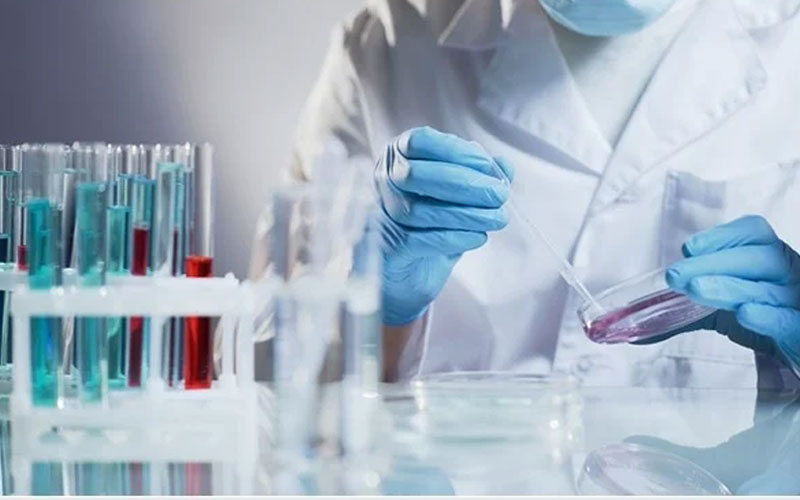In the bustling metropolis of LTG London, expert toxicologists play a crucial role in various sectors, from healthcare and environmental protection to forensic investigations. These specialists are dedicated to understanding the effects of chemicals on living organisms, ensuring public safety, and advancing scientific knowledge. The need for expert toxicologists in London has never been more pronounced, given the increasing complexity of chemical exposures and their implications for human and environmental health.
Understanding Toxicology and Its Importance

Toxicology is the study of the adverse effects of chemicals on biological systems. It combines disciplines such as biology, chemistry, medicine, and pharmacology to evaluate how substances can cause harm. As society evolves, the demand for skilled toxicologists increases.
The Intersection of Science and Safety
Expert toxicologists analyze how various substances interact with living organisms. This intersection of science and safety is paramount, especially in an urban setting like London, where diverse industries operate.
Toxicologists are often called upon to assess risks associated with exposure to harmful substances found in everything from household products to industrial waste. Their work ensures that safety standards are met, protecting the public from potential dangers. Moreover, their expertise extends to evaluating the efficacy of antidotes and treatments for poisoning, thereby saving lives.
Areas of Specialization in Toxicology
Toxicology encompasses several specialized fields, each focusing on different aspects of chemical exposure and its effects.
For instance, forensic toxicologists examine bodily fluids and tissues to determine the presence of drugs or poisons, often assisting law enforcement in criminal investigations. Environmental toxicologists, on the other hand, study the impact of pollutants on ecosystems, contributing valuable insights into conservation efforts and public health policies.
Each specialization requires a deep understanding of both the science behind toxins and the practical implications of findings. The broad nature of toxicology means that expert toxicologists in London are equipped to handle a variety of challenges across multiple sectors.
Training and Education for Toxicologists
Becoming an expert toxicologist involves rigorous education and training. Most professionals hold advanced degrees in toxicology or related fields, often complemented by hands-on experience in laboratories or clinical settings.
The commitment to ongoing education is vital, as advancements in technology and regulations continually shape the landscape of toxicology. Professionals must stay updated on new methodologies and emerging contaminants posing risks to health and the environment. Such dedication ensures that they remain at the forefront of the field, which is essential for maintaining public safety in a rapidly changing world.
The Role of Expert Toxicologists in Public Health
Public health is one of the most critical areas where expert toxicologists in London make significant contributions. Their work directly influences policies, regulations, and practices that safeguard community wellness.
Risk Assessment and Management
One of the primary functions of toxicologists is conducting risk assessments. This process involves analyzing data to establish the likelihood and severity of adverse effects resulting from exposure to specific chemicals.
By evaluating several factors, including dose, duration, and route of exposure, toxicologists develop comprehensive risk profiles. Their findings inform regulatory agencies and help shape policies designed to minimize public exposure to hazardous substances.
Furthermore, effective risk management strategies rely heavily on the expertise of toxicologists. They collaborate with government bodies, environmental organizations, and healthcare providers to implement measures aimed at reducing chemical hazards in communities.
Toxicologists in Regulatory Agencies
Many expert toxicologists find employment within regulatory agencies, where their knowledge is vital for establishing guidelines and standards. These professionals review research studies and data, providing evidence-based recommendations for legislation concerning chemical use and safety.
In London, toxicologists may work with entities such as the Environment Agency or the Health and Safety Executive, playing integral roles in formulating policies that protect both human health and the environment. Their expertise ensures that regulations account for new scientific findings and emerging concerns, promoting a proactive approach to public safety.
Community Engagement and Education
Beyond regulatory roles, expert toxicologists also engage with the public to raise awareness about chemical safety. By educating community members about potential hazards and safe practices, toxicologists empower individuals to make informed decisions regarding their health and environment.
Workshops, seminars, and public health campaigns are common avenues through which toxicologists communicate essential information. Their ability to translate complex scientific concepts into understandable terms greatly enhances public knowledge and fosters a culture of safety.
Forensic Toxicology: A Critical Investigation Tool
Forensic toxicology stands as one of the most intriguing branches of toxicology, bringing together science and investigation to solve crimes and elucidate mysteries surrounding unexplained deaths. In London, expert toxicologists serve as key figures in forensic laboratories, collaborating with law enforcement and legal teams.
The Process of Forensic Toxicology
Forensic toxicologists specialize in identifying and quantifying drugs, alcohol, and poisons in biological samples. This process typically begins with the collection of specimens, such as blood, urine, or tissue samples, which are then subjected to rigorous analysis using sophisticated techniques.
Once results are obtained, forensic toxicologists interpret the data, considering potential confounding factors such as the individual’s medical history and circumstances surrounding the case. Their insights can lead to breakthroughs in investigations, providing crucial evidence that contributes to solving crimes or determining causes of death.
The Impact of Toxicology in Legal Cases
The findings of forensic toxicologists often have profound implications in legal cases. Their analyses can be pivotal in establishing liability, exonerating innocent parties, or supporting prosecutions in drug-related offenses.
In high-profile cases, expert testimony from toxicologists can significantly influence jury decisions. Their ability to present complex scientific findings in court impacts the outcomes of trials, making their role essential to the justice system.
Ethical Considerations in Forensic Toxicology
Ethics plays a vital role in forensic toxicology, as toxicologists must navigate sensitive issues while maintaining scientific integrity. Ensuring accurate and unbiased results is paramount, as wrongful conclusions can devastate lives and reputations.
Moreover, toxicologists must adhere to strict protocols and guidelines to ensure that their work aligns with legal standards. This ethical framework helps maintain public trust in the judicial system and underscores the importance of professionalism in forensic toxicology.
Environmental Toxicology and Its Relevance
As environmental concerns escalate globally, the role of expert toxicologists in London has expanded to encompass environmental toxicology. This branch focuses on the effects of pollutants and chemicals on ecosystems, highlighting the interconnectedness of human health and environmental well-being.
Assessing Chemical Risks in the Environment
Environmental toxicologists evaluate the risks posed by various contaminants, including pesticides, heavy metals, and industrial chemicals. They conduct studies that assess how these substances affect wildlife, plants, and ecosystems, providing crucial data to inform regulatory decisions.
Through field studies and laboratory experiments, toxicologists gather evidence that reveals how pollutants enter the environment, persist, and bioaccumulate in food chains. Their research ultimately aids in developing strategies for pollution prevention and remediation.
Policy Development and Advocacy
Expert toxicologists actively participate in policy development regarding environmental health. By collaborating with government agencies, non-profits, and industry stakeholders, they advocate for sustainable practices and cleaner technologies.
Their insights contribute to creating frameworks that regulate chemical production and usage, helping to minimize environmental degradation. In London, where urbanization and pollution pose significant challenges, the work of environmental toxicologists is instrumental in forging pathways toward sustainability.
Public Engagement and Awareness
Toxicologists also play a key role in raising public awareness about environmental hazards. Through outreach initiatives, they educate communities about the impact of pollution on health and the importance of safeguarding natural resources.
Engaging with schools, community organizations, and local governments allows toxicologists to foster a deeper understanding of environmental issues. By empowering the public with knowledge, they encourage collective action toward preserving the environment and promoting public health.
FAQs
What qualifications do expert toxicologists in London have?
Expert toxicologists typically possess advanced degrees in toxicology, biology, or related fields. Many have undergone extensive training and gained experience in laboratories or regulatory agencies.
How do toxicologists assess the dangers of chemicals?
Toxicologists assess chemical dangers through rigorous testing, studying exposure levels, potential routes of exposure, and identifying susceptible populations. They analyze existing research and data to develop comprehensive risk assessments.
What role do toxicologists play in forensic investigations?
Toxicologists analyze biological samples to identify drugs or poisons in forensic cases. Their findings provide crucial evidence that can solve crimes or determine the cause of death, often serving as expert witnesses in court.
How do environmental toxicologists contribute to public health?
Environmental toxicologists assess the impact of pollutants on ecosystems and human health. By conducting research and advocating for policies, they help mitigate the effects of environmental hazards and promote healthier communities.
What trends are shaping the future of toxicology?
Emerging technologies, such as high-throughput screening and computational toxicology, are revolutionizing the field, allowing for quicker and more precise assessments of chemical safety. Additionally, an increased focus on sustainability and environmental health is influencing research priorities.
Conclusion
Expert toxicologists in London are indispensable allies in our quest for safety and well-being. From public health to forensic investigations and environmental protection, their expertise shapes policies, informs practices, and safeguards communities. As we navigate an increasingly complex world filled with chemical exposures and potential hazards, the ongoing work of toxicologists remains crucial for fostering a safer, healthier future.
